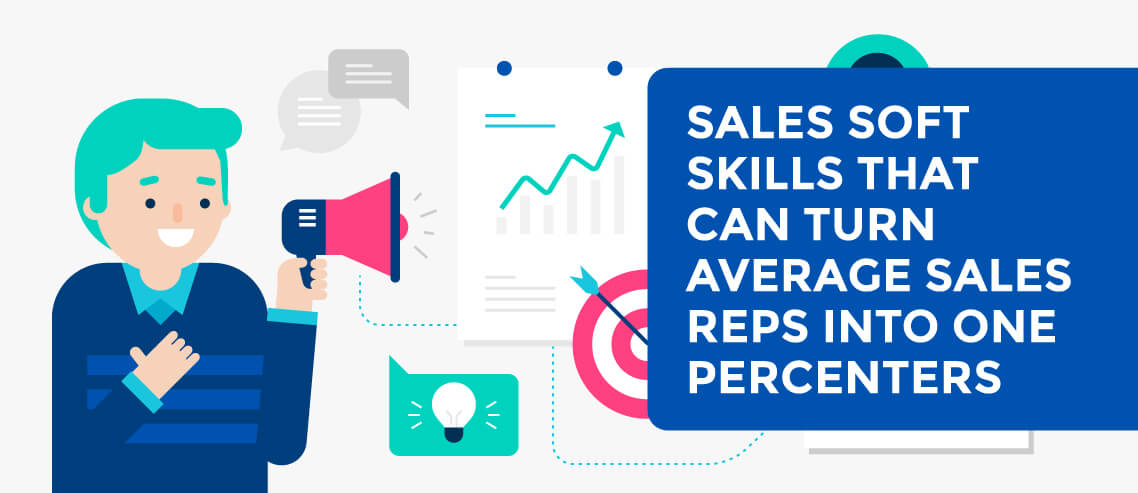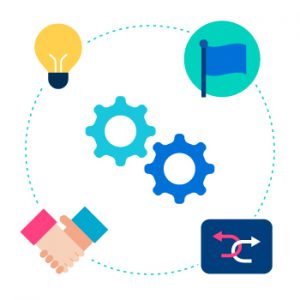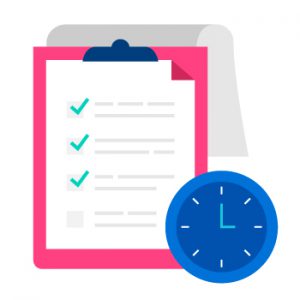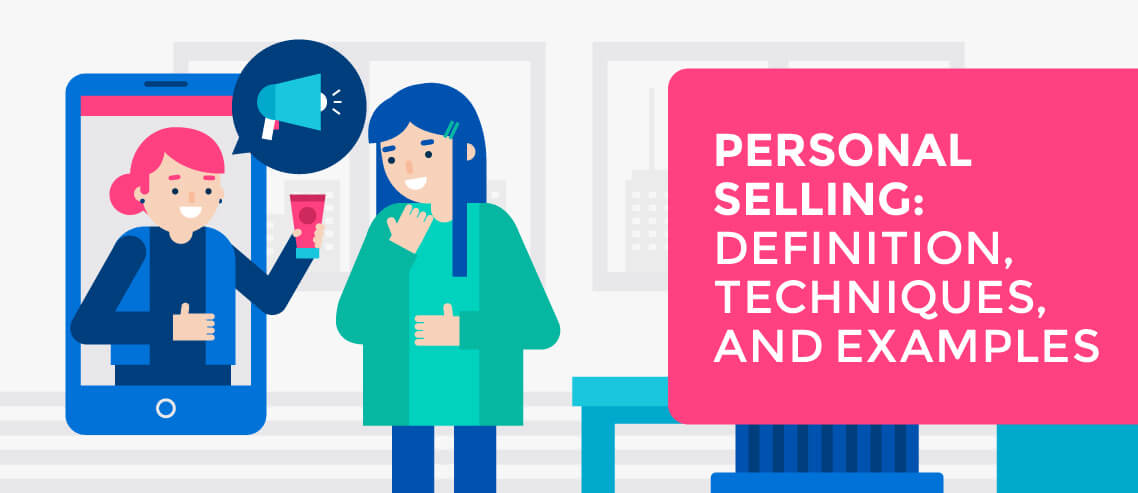7 Sales Soft Skills That Can Turn Average Sales Reps into One Percenters

Contents
What differentiates a successful salesperson — someone who constantly generates quality leads, drives sales, and increases revenue — from the average salesperson?
In most cases, it’s the sales skills you use on a regular basis, both hard and soft sales skills.
Let’s look at the difference between these two types of skills, and then, I’ll share 7 soft sales skills that can help you hit your numbers every month — and maybe even turn you into the top sales rep on your team.
Let’s get started, shall we?
What’s the difference between hard and soft sales skills?
Hard sales skills are teachable skills. There are technical skills that are taught to salespeople in classrooms, workshops, through books, training materials or on the job. They are formal and easily quantifiable. It is easy to determine if a person possesses these skills or not.
Example of hard sales skills include:
- Product knowledge
- Prospecting
- Lead generation
- Sales presentations
- Delivering sales demos
- Conflict management and resolution, etc.
Soft sales skills, on the other hand, are much harder to quantify. Also known as people skills or interpersonal skills, these skills determine your ability to connect with other people on a one-on-one basis.
Since soft sales skills are harder to quantify or measure than hard sales skills, they’re often neglected by sales managers. After all, it’s easier to access a person’s ability to generate leads than to measure how much empathy they have. And if you can’t “fix” it, why bring it up?
But here’s the thing…
Just because it’s hard to measure doesn’t mean it’s not integral to the success of a salesperson.
Why are soft sales skills important?
 Soft skills do more than just persuade. These skills help you tap into the buyer’s emotions and influence the buyer’s decisions and actions.
Soft skills do more than just persuade. These skills help you tap into the buyer’s emotions and influence the buyer’s decisions and actions.
Whereas hard skills can get you the prospect’s attention, soft skills help you close the deal.
So let’s look at 7 soft skills that you must possess to succeed as a salesperson.
Soft Skill #1: Empathy
Empathy is the awareness of other people’s feelings and emotions. Empathy allows you to understand other people’s feelings as though you were feeling them yourself.
In sales, empathy will help you fully understand the prospect’s needs and problems. It helps you understand where they are coming from, their pain points, their fears and worries. And that will increase your influence over the buyer’s decision and help guide them towards solutions that will meet their needs.
RELATED: The Top 8 Sales Methodologies to Consider for Your Business
When you approach a deal with empathy, you’re able to build genuine trust and deeply connect with the prospect.
How to become more empathic
Empathy is a skill that you need to practice every day for it to become a part of you. It does not have a switch that you can turn on and off at will. You need to constantly practice it, not only while working but in every aspect of your life.
It isn’t very difficult to start developing this skill. Here are some habits you can train yourself in to become more empathic:
Try to understand the prospect’s emotional state
The first way to develop this skill is by trying to understand the emotional state of the prospect. Pay attention to the verbal cues of the individual. What do they tell you about how the client is feeling? What kind of words do they use? Are they unsure or emotional?
Understanding the emotional state would help deepen your connection with the client.
Put yourself in their shoes
To understand what a person feels, you need to put yourself in their position. Empathy isn’t you saying “I can imagine what you feel”, but saying ” I feel what you feel”. This ability helps you create a connection and builds a foundation of trust with the prospect.
To develop this skill, imagine how you would feel if you were in the person’s position.
Listen and accept their interpretation
Salespeople are quick to try to change people’s minds. Selfishly, they need to move so quickly so they can close the deal and move on to the next prospect. Trouble is, with this approach, it’s easy to overlook the client’s views and opinions.
Ask yourself this question: Would you want to buy from someone who doesn’t try to understand where you are coming from?
Before selling, listen to the prospect. Build rapport. Not only does this help you create a connection with the prospect, it helps you optimize your sales process for future meetings.
Soft Skill #2: Communication
Proper communication is crucial for a successful sales process. You cannot make a sale unless you have effectively communicated the value of your product or service to the prospect.
Even when you have a great product, an amazing value proposition, and favorable pricing — none of that matters if you cannot effectively communicate them clearly and concisely to the client.
To be an effective communicator, you need to understand your prospect, learn what kind of communication style they prefer, and plan your sales strategy using this information.
How to become an effective communicator
Pay full attention
It is easy to get distracted during a conversation. Maybe you’ve got a packed schedule, and you’re more focused on the time than on what the prospect is saying. Maybe you’re formulating your next question rather than listening carefully to what they’re saying now. Either way, you’re missing important details that will help you build relationship and trust — and ultimately close the deal.
To do that, you must pay full attention when communicating with a prospect.
Taking notes during a meeting is a great way to stay focused on what a prospect is saying and helps you ensure no detail goes unnoticed. By using tools like Method:CRM you can even embed your notes right into your prospect’s contact file.
Remember, it is easy for the prospect to know when you are not paying attention. That destroys trust rather than building it. So give 100% of your attention to what’s being said right now.
Speak clearly and be specific
Avoid using big terms and sales jargon that can confuse the prospect. Speak in layman’s terms that anyone can understand. It also helps if you can bring up specific examples and anecdotes that can support your points.
Be genuinely curious
You need to determine if any part of your product is relevant to the buyer, and the only way you can do this is by asking the right questions. Don’t assume you know what’s going on with the prospect. Part of being a good communicator is asking questions first, before answering them.
Don’t just imagine what the prospect would want to hear. Ask them what problems they want solved. This will help you to give a better pitch.
Soft Skill #3: Being a Team Player
 The top 1% of salespeople are not lone wolves. It takes a team to succeed. This is especially true if you’re selling to large, complex accounts.
The top 1% of salespeople are not lone wolves. It takes a team to succeed. This is especially true if you’re selling to large, complex accounts.
Not only do you need the support of other salespeople on your team, you need to be able to work cross-functionally, with people in Marketing, Product, and Customer Success.
How to become a better team player
Here are some qualities that would make you an exceptional team player:
RELATED: 7 Sales Team Motivation Strategies That Cost You Nothing
Be genuinely committed
As a good team player, you must be genuinely interested in the cause of the brand. You can’t just sit back and allow others to do the work; you actively contribute to the team’s success.
Be a problem solver
Don’t just complain about challenges. Offer solutions. In an office setting, being a problem solver can even increase your chances of getting a promotion.
Support and respect your team members
It is important to be aware of how you treat other members of your team. Remember that respect is reciprocal. Never try to shut down someone else’s ideas. Have fun, but never at the expense of others.
Soft Skill #4: Perseverance
Getting rejected is part of the sales process. But top salespeople know that, and they take it in stride. They’re able to persevere through difficulties, failures, and opposition.
It’s perseverance that allows you to keep dialing or doing demos, even after a series of no’s.
It’s perseverance that drives you to continue nurturing a relationship even after a no, because you know they could introduce you to someone or make a career move that could lead to a sale.
It’s perseverance that differentiates successful salespeople from the unsuccessful, and it will help you stay the course, even when you’re discouraged or disappointed.
How do you cultivate perseverance?
Have a clear vision
The road to success isn’t easy. You need to have a mental map of the goals you want to achieve. Make sure you write them down, and post them where you can see them every day.
Handling setbacks
When facing a setback, there are three things you need to do: pause, assess, and then identify the problem. When a door closes, ask yourself, “Is it really closed?”
Remain calm as you analyze the situation. Break down the problem into smaller parts and figure out your next move. For example, why is a prospect saying no? Do they need more education on your product? Do you need to add additional features?
Taking the time to analyze the situation can help you come up with solutions that you wouldn’t have seen if you had just given up.
Soft Skill #5: Flexibility
One key quality of a successful salesperson is flexibility. Flexibility in this context is the ability to adjust to whatever a situation requires.
Each prospect is different, and you need to be able to adjust quickly to make sure your message and solution fit their needs. (This is also one of the reasons listening is so important. The prospect will tell you what they need, if you’re paying attention.)
How to become flexible
Be open-minded
It’s easier to respond to a situation if you fully understand it. Focus on relationship seling. Figure out what matters to the prospect, what their needs are, and what they’re looking for in a solution.
Stay up to date
Not only do you need to be flexible with people, you need to be able to adapt the way you work to the technology available to you. Stay up to date. Test new tools as they become available. Stay on top of the changes in your industry. And always be growing your skills.
Plan ahead
There is no way to know what the future folds, but you should always plan ahead. It every deal, anticipate the objections that might arise, and plan for them. Have a ready answer for the questions and concerns that are most likely to come up.
Soft Skill #6: Time Management
 You’ve heard that time is money. This is especially true for salespeople. Every minute you spend on tasks that aren’t related to sales leads to lost revenue for the business.
You’ve heard that time is money. This is especially true for salespeople. Every minute you spend on tasks that aren’t related to sales leads to lost revenue for the business.
To be a top performer, you need to manage your time effectively. How much time do you spend on high-gain selling activities? Implement productivity systems to ensure that you’re performing optimally at every point of the day.
How to effectively manage your time
Eliminate unnecessary tasks
There are plenty of tasks you perform every day that are unnecessary or nonessential. They steal into your precious time and keep you from focusing solely on sales. For example, administrative tasks can take a huge portion of the seller’s time. Where possible, automate or outsource these tasks to other teams in your organization.
RELATED: The Best 17 Meeting Scheduling Apps
Smart emailing
Emails are an integral part of your arsenal. Even though emails are a great way to build leads, they can be time-consuming. So create shortcuts for yourself:
- Create templates for the most common emails you write.
- Using a sales engagement tool like Mailshake to automate some email campaigns.
Do the tasks you dread first
If there are tasks you dread, do them first. Some people hate cold calls or emails. They dislike follow up emails or prospecting. The best way to tackle these tasks is by diving into them head-on. Instead of putting them off, just do them. The sooner you perform these tasks, the sooner you’ll be done with them.
Soft Skill #7: Negotiation
Not every account is closed-won the minute you make an offer. A good salesperson knows how to effectively negotiate and find terms both you and the prospect are happy with.
It takes skillful negotiation to overcome objections and come up with creative solutions to effectively close the deal. Here’s where your natural conflict resolution and resourcefulness will shine.
How to be better at negotiating
Here are some skills you can master to help you get better at negotiations and protect your profit margins.
Time it right
Before you enter negotiations, you need to answer all questions and overcome all objections. By now, the only thing you should be talking about is terms. Get the agreement in principle. Then you can iron out the details of the deal.
Don’t just negotiate the price
The prospect wants to get the best deal possible, but that’s not all that they want. They want solutions, which means you can bring other things to the table:
- Add-on services
- Time to delivery
- Managed account
- Partnership
- Payment options
Make sure you understand what the customers needs, so you know the non-monetary terms can be negotiated.
Keep it equitable
The best deals give a win to both sides of the table. Don’t give away too much, but be prepared to give as much (if not more) value than you’re getting from the deal.
Soft sales skills make you a better salesperson
Soft sales skills are typically innate — things you’re born with, and either you have them or you don’t.
But soft skills can also be developed… and they can be the difference between a good salesperson and a one-percenter. The key? You need to consciously work to develop these skills, so they’re your natural response to a situation.
So how do you do that? One at a time.
Choose one soft skill to actively practice each month. In a space of 7 months, you could have refined seven skills that can catapult your career as a salesperson.
And the best part? These skills not only make you a better person, they make you a better human.
Which of the skills would you be practicing first? Do you think some are much easier to do than others?





